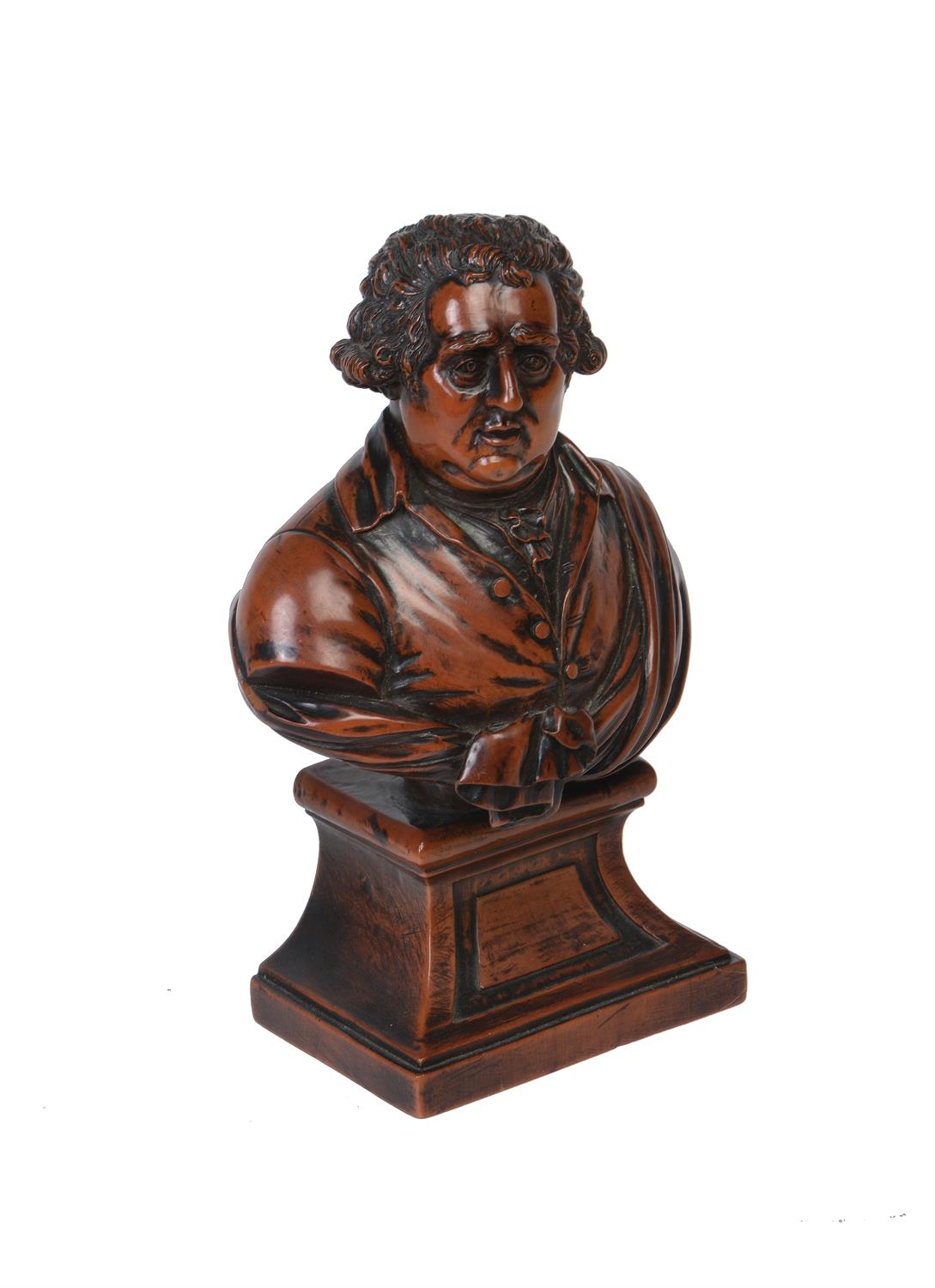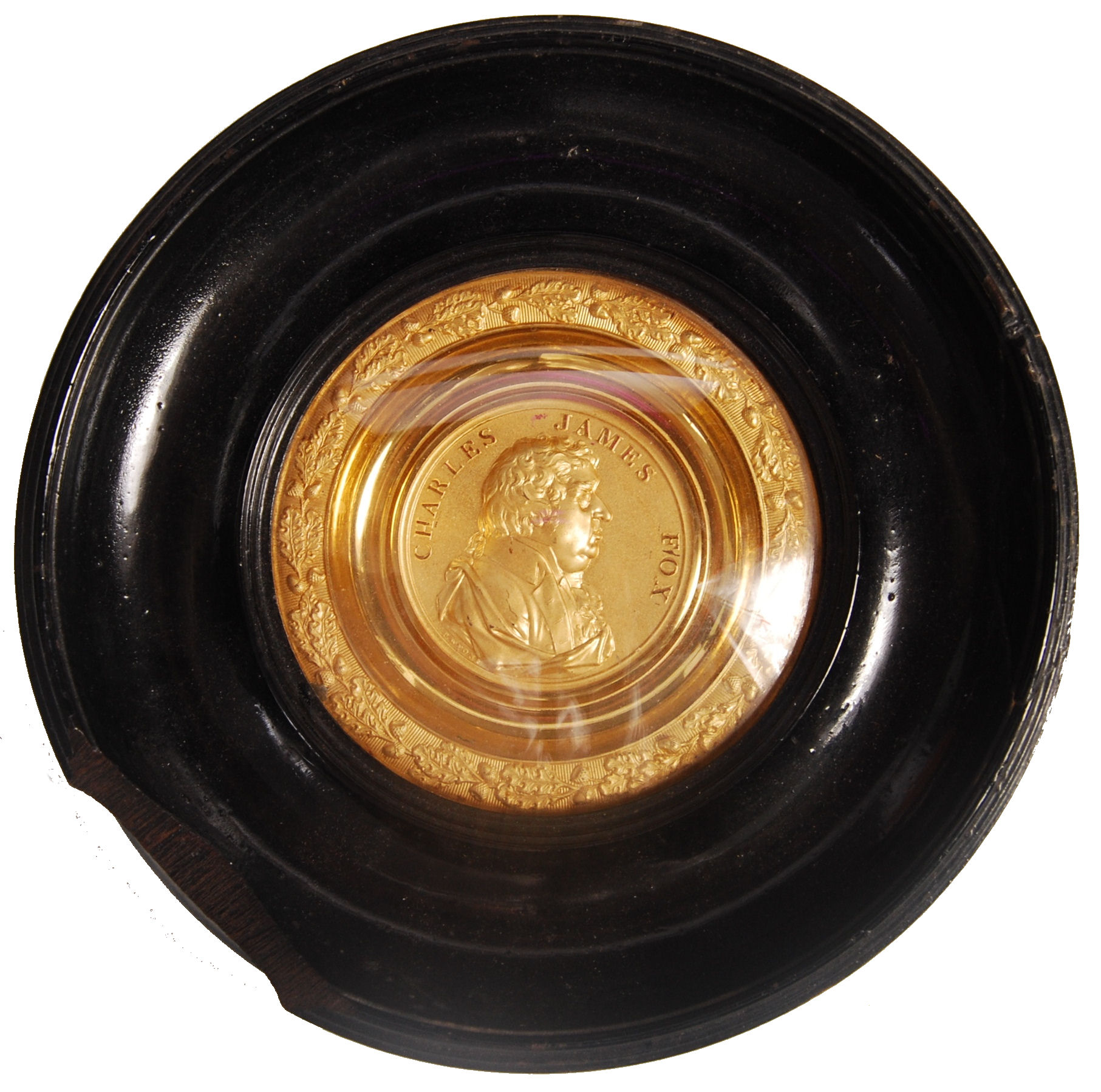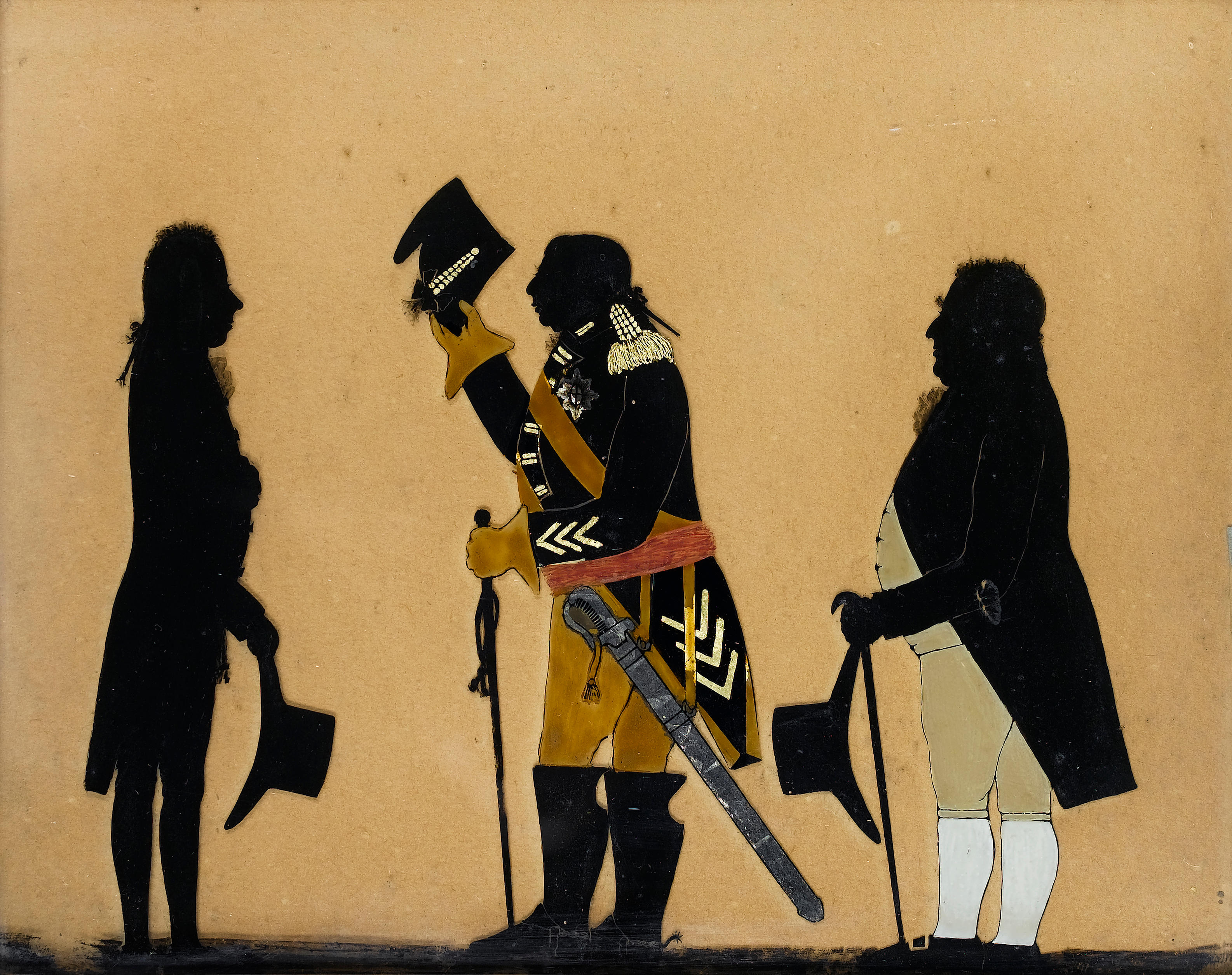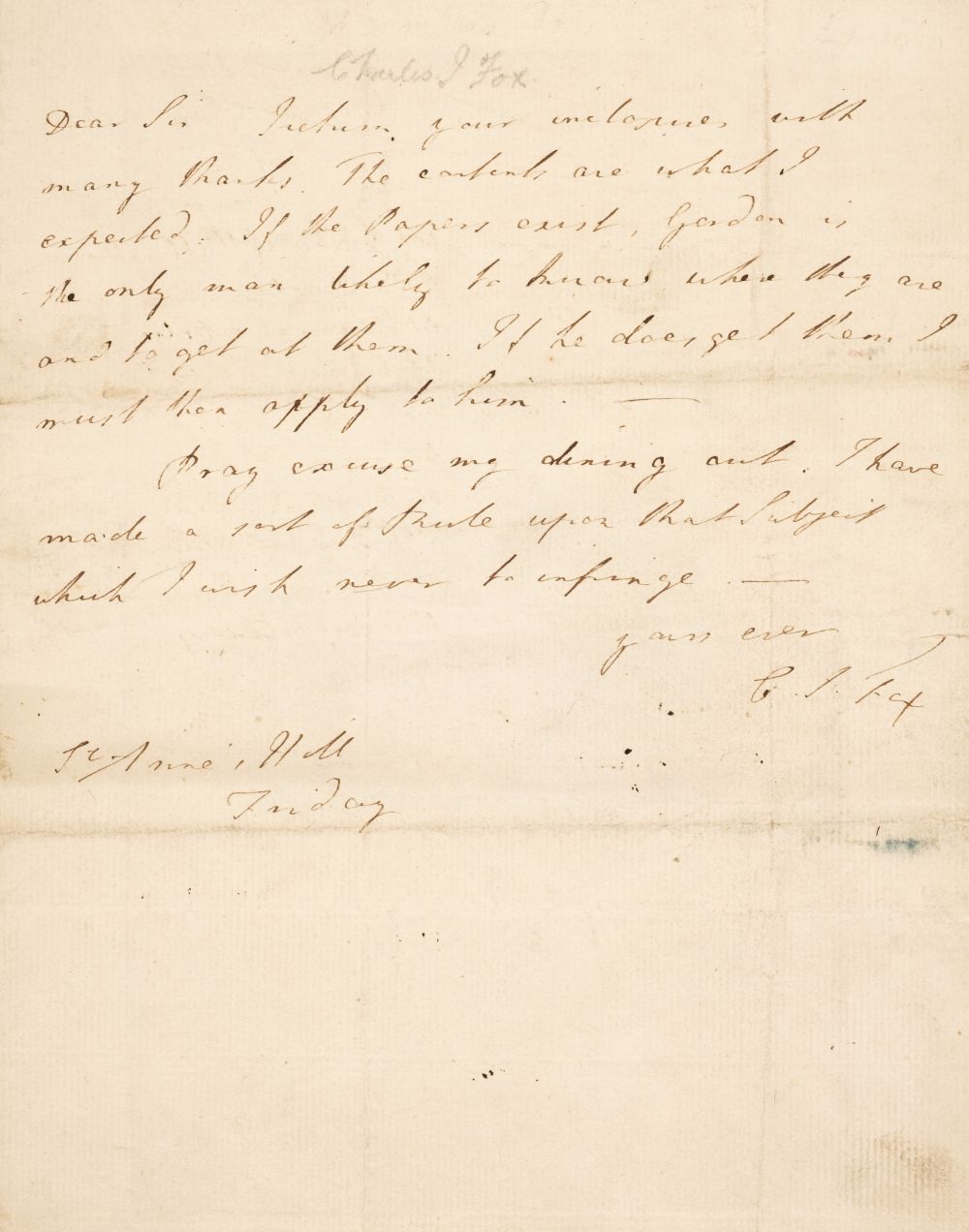FOX, Charles James (1749-1806), British Secretary of State for Foreign Affairs . Autograph letter signed ("C.J. Fox") to an unidentified correspondent (almost certainly David Hartley [1731-1813], British negotiator in Paris), marked "Private" at the top, St. James's Place, [London], 14 June 1783. 1 full page, 4to (9¼ x 7¼ in.), integral blank with recipient's docket. SECRET INSTRUCTIONS FROM THE FOREIGN MINISTER DURING NEGOTIATIONS FOR THE TREATY OF PARIS THAT ACKNOWLEDGED AMERICAN INDEPENDENCE The initial confidential discussions which led to the Treaty of Paris had began in April 1782 between British representative Richard Oswald and Benjamin Franklin Hartley, Oswald's successor as Commissioner for Peace, was himself an old friend of Franklin's from pre-war days. He reported to Charles James Fox, British Secretary for Foreign Affairs, who was fixed upon ending the alliance between the colonies and France by granting the rebellious colonies their independence. Preliminary Articles were agreed in November 1782, and additional American negotiators John Adams and John Jay joined the discussions. While the negotiations continued in Paris on the precise provisions of the definitive treaty, Fox remained in close contact with Hartley, and wrote him frequently with admonitions, suggestions and advice; on occasion (such as one alluded to in this letter) he also conferred informally in London with Henry Laurens, an additional American representative who had been captured by the British at sea and held as prisoner of war. Here, Fox cautions Hartley not to permit anything in the treaty to permit American merchant vessels to carry the produce of the West Indies to Great Britain, or even to American ports: "I have one moment only to write; but pray take care that in the intended convention [the Treaty of Paris] nothing is done which can bind us to let the produce of the W. Indies go even to America, in American bottoms [merchant vessels]. This need not be mentioned because the tenour of the Article ought to be: We will admit American ships upon such terms [and] you shall admit British ships upon such terms." "There need be no mention of the rules we may either of us make about the export of our own produce. I have seen [American diplomat Henry] Laurens who is clear we shall agree, yours ever..." Fox believed that Americans would remain farmers and consumers of British manufactures and was anxious to prevent their becoming either a manufacturing or maritime power by strictly limiting their right to carry British produce or manufactures. But in the end, the ten articles comprising the Treaty of Paris, signed 3 September 1783, made no allusion at all to the critical West Indies trade. The most important article, of course was Article 1, in which King George III acknowledged the United States, to be "free sovereign and independent states," and formally relinquished "all claims to the government, propriety, and territorial rights of the same." (A portion of the David Hartley papers were dispersed in the late 19th century, and a further portion was sold at Christie's New York, 25 November 1997).
FOX, Charles James (1749-1806), British Secretary of State for Foreign Affairs . Autograph letter signed ("C.J. Fox") to an unidentified correspondent (almost certainly David Hartley [1731-1813], British negotiator in Paris), marked "Private" at the top, St. James's Place, [London], 14 June 1783. 1 full page, 4to (9¼ x 7¼ in.), integral blank with recipient's docket. SECRET INSTRUCTIONS FROM THE FOREIGN MINISTER DURING NEGOTIATIONS FOR THE TREATY OF PARIS THAT ACKNOWLEDGED AMERICAN INDEPENDENCE The initial confidential discussions which led to the Treaty of Paris had began in April 1782 between British representative Richard Oswald and Benjamin Franklin Hartley, Oswald's successor as Commissioner for Peace, was himself an old friend of Franklin's from pre-war days. He reported to Charles James Fox, British Secretary for Foreign Affairs, who was fixed upon ending the alliance between the colonies and France by granting the rebellious colonies their independence. Preliminary Articles were agreed in November 1782, and additional American negotiators John Adams and John Jay joined the discussions. While the negotiations continued in Paris on the precise provisions of the definitive treaty, Fox remained in close contact with Hartley, and wrote him frequently with admonitions, suggestions and advice; on occasion (such as one alluded to in this letter) he also conferred informally in London with Henry Laurens, an additional American representative who had been captured by the British at sea and held as prisoner of war. Here, Fox cautions Hartley not to permit anything in the treaty to permit American merchant vessels to carry the produce of the West Indies to Great Britain, or even to American ports: "I have one moment only to write; but pray take care that in the intended convention [the Treaty of Paris] nothing is done which can bind us to let the produce of the W. Indies go even to America, in American bottoms [merchant vessels]. This need not be mentioned because the tenour of the Article ought to be: We will admit American ships upon such terms [and] you shall admit British ships upon such terms." "There need be no mention of the rules we may either of us make about the export of our own produce. I have seen [American diplomat Henry] Laurens who is clear we shall agree, yours ever..." Fox believed that Americans would remain farmers and consumers of British manufactures and was anxious to prevent their becoming either a manufacturing or maritime power by strictly limiting their right to carry British produce or manufactures. But in the end, the ten articles comprising the Treaty of Paris, signed 3 September 1783, made no allusion at all to the critical West Indies trade. The most important article, of course was Article 1, in which King George III acknowledged the United States, to be "free sovereign and independent states," and formally relinquished "all claims to the government, propriety, and territorial rights of the same." (A portion of the David Hartley papers were dispersed in the late 19th century, and a further portion was sold at Christie's New York, 25 November 1997).














.jpg?w=400?width=1600&quality=70)
Testen Sie LotSearch und seine Premium-Features 7 Tage - ohne Kosten!
Lassen Sie sich automatisch über neue Objekte in kommenden Auktionen benachrichtigen.
Suchauftrag anlegen